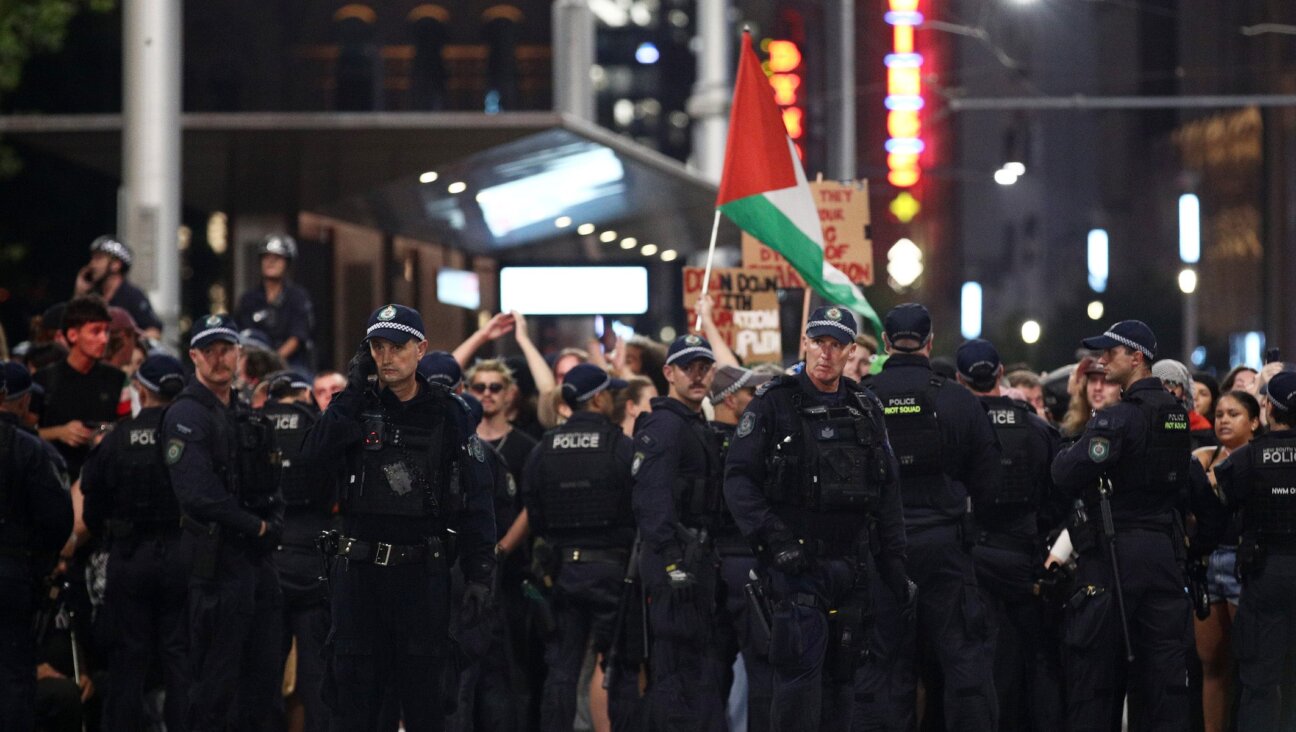20 of 25 authors nominated for National Book Awards call for Gaza ceasefire during ceremony
One Jewish sponsor had pulled out over the planned statement

Novelist Aaliyah Bilal reads a pro-ceasefire statement that had drawn concern at the National Book Awards ceremony, Nov. 15, 2023. (Screenshot/X)
(JTA) — Twenty of 25 finalists for the National Book Awards stood together on Wednesday night to deliver a call for a ceasefire in Israel’s war with Hamas in Gaza, in a move that had caused one Jewish sponsor of the ceremony to back out.
Zibby Owens, the owner of Zibby Books, announced on Tuesday that her company would no longer co-sponsor the prestigious awards after the foundation that gives them out would not assure her that it would respond if the planned statement used language that “could be used to intimidate based on religious views.” Another sponsor, Book of the Month, told the New York Times it would continue to support the awards but skip the ceremony because of the planned statement.
The 58-word statement, read by novelist Aaliyah Bilal, explicitly expressed opposition to antisemitism as it called for an end to Israel’s war in Gaza, launched in response to the attack waged by Hamas, the terror group that controls the coastal territory, on Oct. 7.
“On behalf of the finalists, we oppose the ongoing bombardment of Gaza and call for an humanitarian ceasefire to address the urgent humanitarian needs of Palestinian civilians, particularly children,” read Bilal, whose nominated book “Temple Folk” is about Black American Muslims.
She added, “We oppose antisemitism and anti-Palestinian sentiment and Islamophobia equally, accepting the human dignity of all parties, knowing that further bloodshed does nothing to secure lasting peace in the region.”
It was not clear which of the 25 finalists did not sign onto the statement. About a dozen finalists joined Bilal on the stage. The statement drew “thunderous applause,” according to a Literary Hub report. Above a video of the statement, Literary Hub wrote, “Thank you for your words of peace.”
Many of the writers who were nominated prepared a statement about the humanitarian crisis in Gaza. Thank you for your words of peace. pic.twitter.com/fFNmZIANaP
— Literary Hub (@lithub) November 16, 2023
This article originally appeared on JTA.org.
















